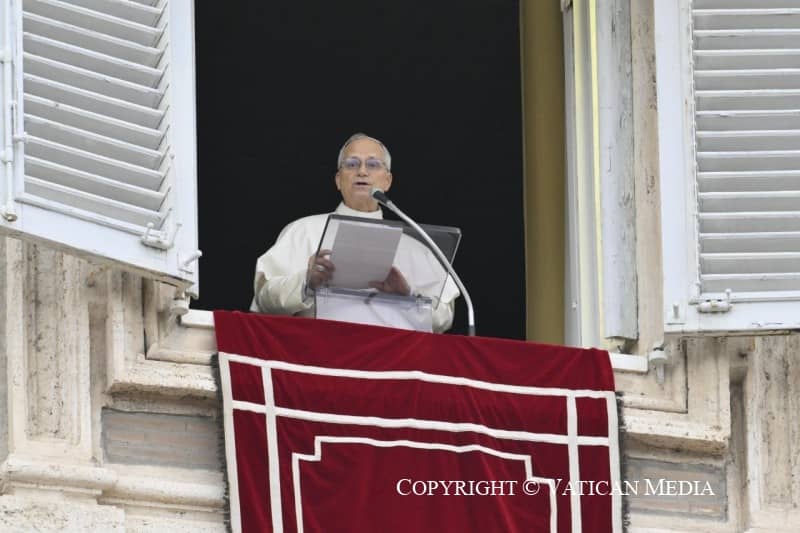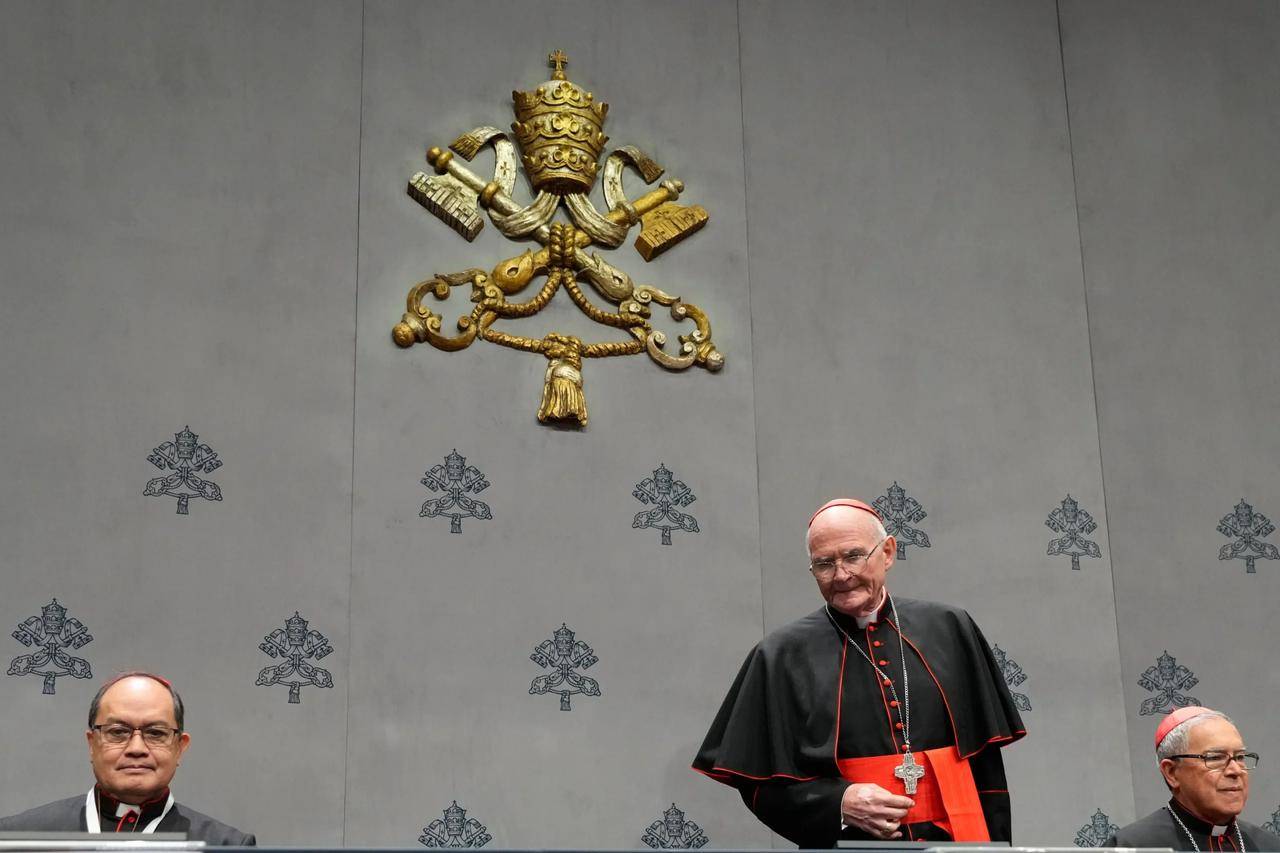ROME – As the Boy Scouts of America slide further into scandal with allegations of widespread sexual abuse continuing to go public, the Catholic Church also finds itself on the public hot seat again one year after a global summit on child protection.
Exactly 12 months after Pope Francis’s historic Feb. 21-24 abuse summit, attended by the presidents of all episcopal conferences worldwide, both survivors and experts have reflected on what the institution has accomplished, and what has yet to be done.
Speaking to Crux, German Jesuit Father Hans Zollner, who was part of the summit’s organizing committee, called the event “a milestone” in both recognizing and accepting that the abuse of children and vulnerable people is a global problem, and that the Church “must be at the forefront” of developing and implementing best practices for safeguarding.
The head of the Pontifical Gregorian University’s Center for Child Protection (CCP) and a member of the Pontifical Commission for the Protection of Minors, Zollner said being at the forefront “means to protect children and the most vulnerable among adults and to safeguard their dignity and possibility for growth.”
The priest noted that the Catholic Church isn’t the only institution dealing with this, pointing to the Boy Scouts, which announced on Tuesday it was filing for bankruptcy after dozens of people accused members of the organization of abusing them in a period spanning decades.
Zollner noted the same reactions to abuse – denial and cover-up – is also seen in other institutions, including other faith denominations and public schools.
He cautioned against the Church trying to take the moral high-ground, saying “we shouldn’t think we can teach others now. If somebody wants to work with us to move forward, we are certainly willing to share forces.”
Zollner highlighted several concrete steps the Vatican has taken to promote safeguarding over the past year, including the publication shortly after the summit of new guidelines concerning the protection of minors and vulnerable people.
Published in May 2019 and titled Vos estis lux mundi, new guidelines, among other things, make it mandatory for all clerics and members of religious orders to report cases of clerical sexual abuse to Church authorities, regardless of their ecclesial status.
Additionally, Zollner pointed to the pope’s decision in December 2019 to abolish the pontifical secret in abuse cases, meaning that from Jan. 1, 2020, onward all documents produced in canonical procedures involving sexual abuse can be submitted, upon request, to competent authorities in a given country.
“This applies both to the documents kept in the Vatican archives and to those found in the diocesan archives,” which were also previously subject to pontifical secrecy, he said.
Yet while Zollner is optimistic about the progress made, survivors have criticized the pope for not doing enough, saying the same patterns are still happening after the summit.
“The pope has the ability, has the power, to command every bishop in the world to report sexual abuse to civil society. Presently, it’s up to the bishops to decide, or not to decide, in relation to civil law.,” said Tim Lennon, an abuse survivor and president of the Survivors Network of the Abused by Priests (SNAP).
“It’s civil society that gives this church any kind of moral compass. It isn’t coming from within,” he told Crux, explaining that in his view, the Vatican’s new guidelines fall short of any effectiveness because reporting follows the Church’s hierarchical structure.
In the so-called “metropolitan model,” abuse or cover-up by priests must be brought to their bishop, and abuse or coverup by bishops must be reported to the metropolitan archbishops overseeing the area. In cases where the metropolitan is accused of abuse, reporting can be done directly to the Holy See through the papal representative in the country.
According to Lennon, the law “is not effective,” because “its bishops investigating other bishops,” which he said is what got the Church in trouble in the first place.
“We rely on secular society,” he said, calling the new model “bogus.”
Lennon said he believes the new laws are designed “to keep the information within the Church. As long as they keep the secret, they control.”
Similarly, Kevin Bourgeois, leader of SNAP’s New Orleans branch, told Crux he believes accountability means “to really lift the veil of secrecy and to be open and transparent.”
“They talk the talk, but they do not walk the walk when it comes to being honest with people who are in the pews every single Sunday,” he said, insisting that transparency would mean not only defrocking top prelates convicted of abuse – such as Australian Cardinal George Pell, who is currently awaiting ruling on a second appeal of his conviction of abusing an altar boy – but also handing over documents to federal and state officials so instances of abuse can be investigated.
Claudia Labeguerie, an abuse survivor from a school for the deaf in Mendoza, Argentina, said she wanted to come to Rome for the anniversary of the summit because the pope’s promise “didn’t go through, it was left to words and not practice.”
“We’ve come to demand evidence so there’s no more coverup,” she told Crux. “We’ve suffered a lot, abuse and torture…We’ve come to tell our story. Because we got justice in Argentina, our abusers are incarcerated, but we need this to happen in the rest of the world.”
“It’s not something that just happened to us, but this happens a lot in other countries,” she said.
In November notorious pedophile priest Father Nicola Corradi, along with along with two others — Father Horacio Corbacho and layman Armando Ramón Gómez Bravo — were convicted and sentenced to prison for the sexual abuse of minors at the Provolo Institute for Deaf and Hearing Impaired Children, which also had a presence in La Plata and Verona, Italy.
Another trial is underway against nine women, including two religious sisters, who allegedly covered up and enabled the abuse.
According to Zollner, major results won’t be seen immediately, but it will take time to fully implement change and apply Francis’s new guidelines.
“It is impossible for the Holy Father to snap his fingers and effect an immediate change,” he said, but shared that in his experience, this change is already “happening rapidly” in many dioceses and bishops’ conferences.
“In my travels, I see that work is being done to revise guidelines to accommodate the changes put forth by Vos Estis and the conditions for which pontifical secret for clerical sexual abuse casework can now be lifted,” he said, noting that new offices dedicated to prevention and intervention are being established and the CCP is working vigorously to provide training to the personnel staffing these offices.
One hole Zollner said still needs to be filled is that while Vos Estis offers an initial description, the Church needs “a better definition of Vulnerable People” and “we’ll need to verify its implementation – especially in regards to the establishment of offices in dioceses,” including religious orders, and an accountability system will have to be put into place.
“Pope Francis has acted decisively to implement rigorous legal changes for his own juridical territory of Vatican City State,” he said, noting that this also includes extraterritorial Vatican realities, such as seminaries, universities, hospitals, and churches throughout Rome.
In each of these entities, people are being more carefully vetted and are obliged to report the abuse of minors and vulnerable people, he said, adding that “Those who do not listen to such reports are themselves guilty of misbehavior punishable by law.”
However, despite the progress Zollner outlined, for survivors and their advocates this change needs to happen on a much faster timeline.
Nadia Debbache, a lawyer with French Association La Parole Libérée, which provided representation to the victims in the ongoing case against French Cardinal Philippe Barbarin, archbishop of Lyon, who was recently acquitted by an appeals court of cover-up, said she believes “the position of the pope is very complex.”
“I think maybe he tried to change … but in reality there are no actions because there has been no change, it’s the same situation because the mentalities are the same,” she said, adding that for its own sake, it’s “necessary for the institution of the Catholic Church to change quickly.”
Follow Elise Ann Allen on Twitter: @eliseannallen
Crux is dedicated to smart, wired and independent reporting on the Vatican and worldwide Catholic Church. That kind of reporting doesn’t come cheap, and we need your support. You can help Crux by giving a small amount monthly, or with a onetime gift. Please remember, Crux is a for-profit organization, so contributions are not tax-deductible.













